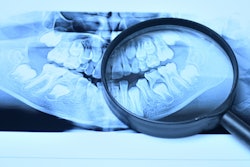
Can you blame mom and dad for a patient's caries? Maybe. An international team of researchers identified dozens of new genes associated with oral health and dental diseases. Their findings suggest many dental traits are heritable.
Scientists have long known that two people with similar diets and oral hygiene routines can have vastly different levels of oral health. Researchers explored whether genetics may explain this conundrum in a new study, published in Nature Communications (June 24, 2019).
Their meta-analysis included data from more than 500,000 participants, including 461,000 participants from the U.K. Biobank and 62,000 participants from nine clinical studies. It is the largest study of its kind, according to the authors.
The researchers identified 47 new genes connected to oral health. They also confirmed an association for a gene linking immune health and periodontal disease.
“The study makes it clear that teeth are part of the body.”
The links included some relatively obvious factors, such as genes involved with tooth and jaw formation, saliva, and oral bacteria. However, the analysis also suggested a causative relationship between cardiovascular-metabolic health and oral health, and genes responsible for dental caries may have an effect on the whole body.
"The study makes it clear that teeth are part of the body," lead author Ingegerd Johansson, DDS, a senior professor at Umeå University in Sweden, stated in a press release. "Among other things, we can see that there seems to be a causal link between risk factors for cardiovascular disease and tooth decay."
Many dental traits may be heritable, but the study authors aren't letting patients off the hook for their own oral health. It's still important to brush and floss -- even if patients are genetically predisposed to caries.
"In the future, studies like this may pave the way to identifying people who are at particular risk of dental problems," stated study author Simon Haworth, BDS, from the Bristol Dental School in the U.K. "However, no matter what genes people carry, good oral hygiene and diet are the most important things people can do to reduce the risk of tooth decay and gum disease."



















